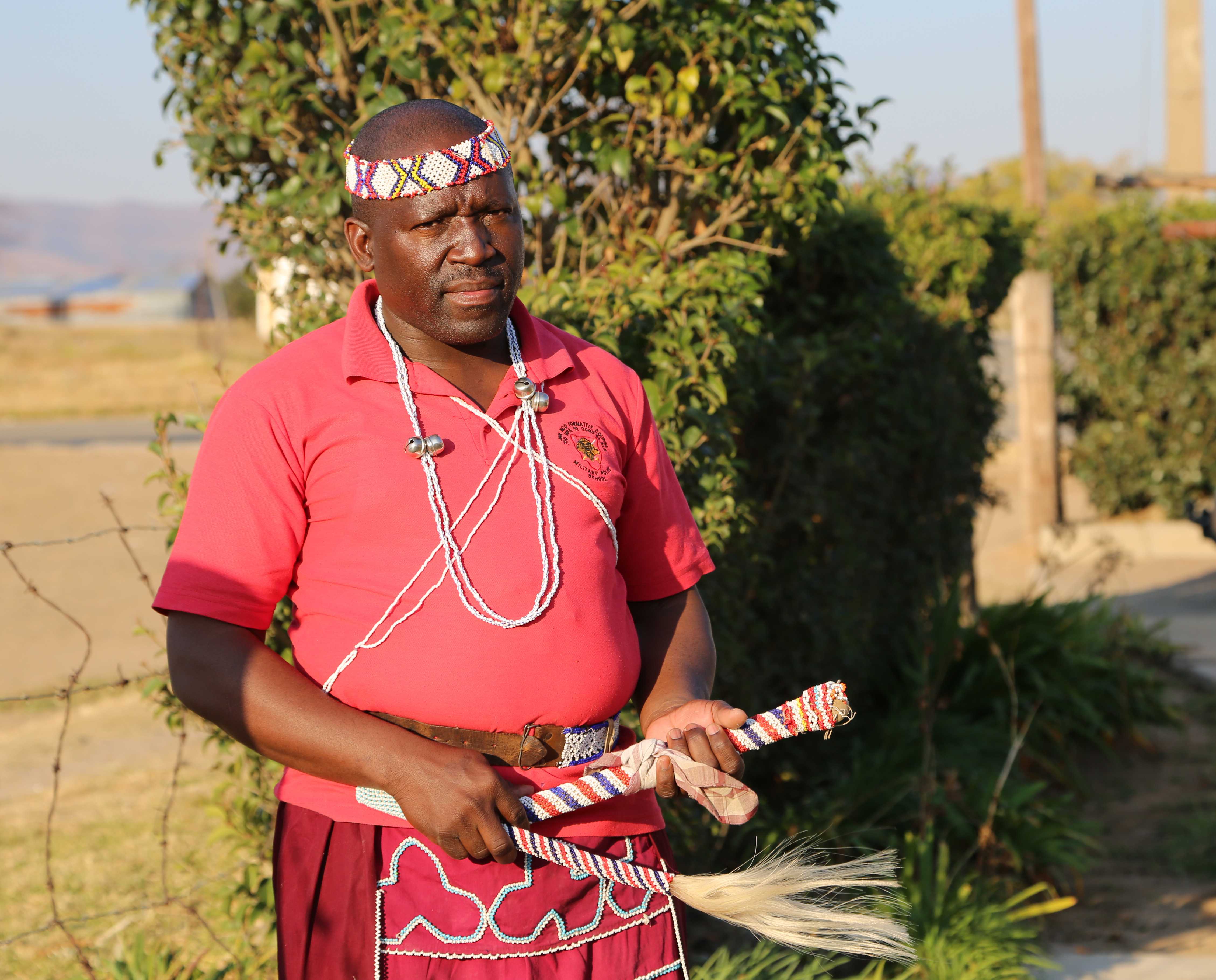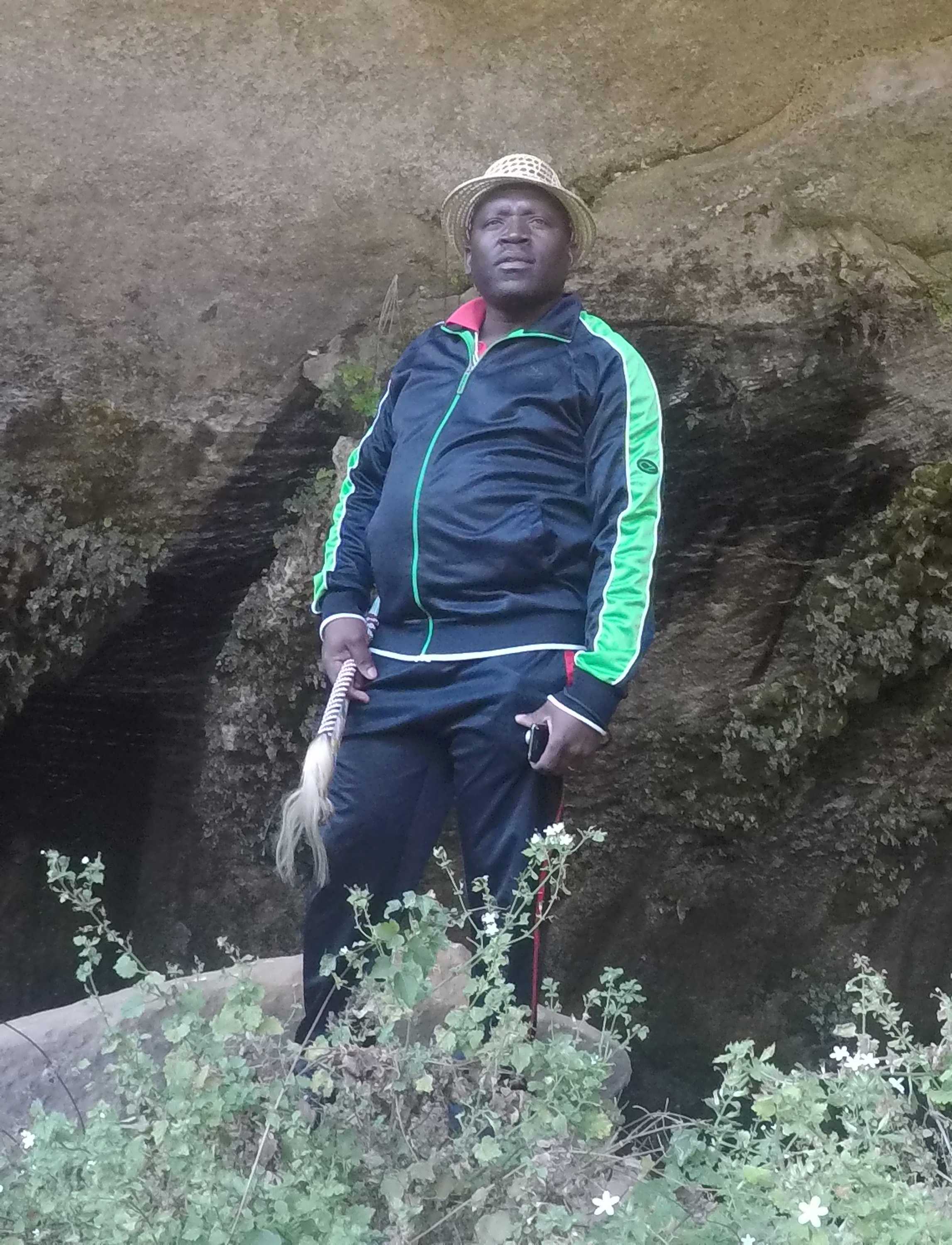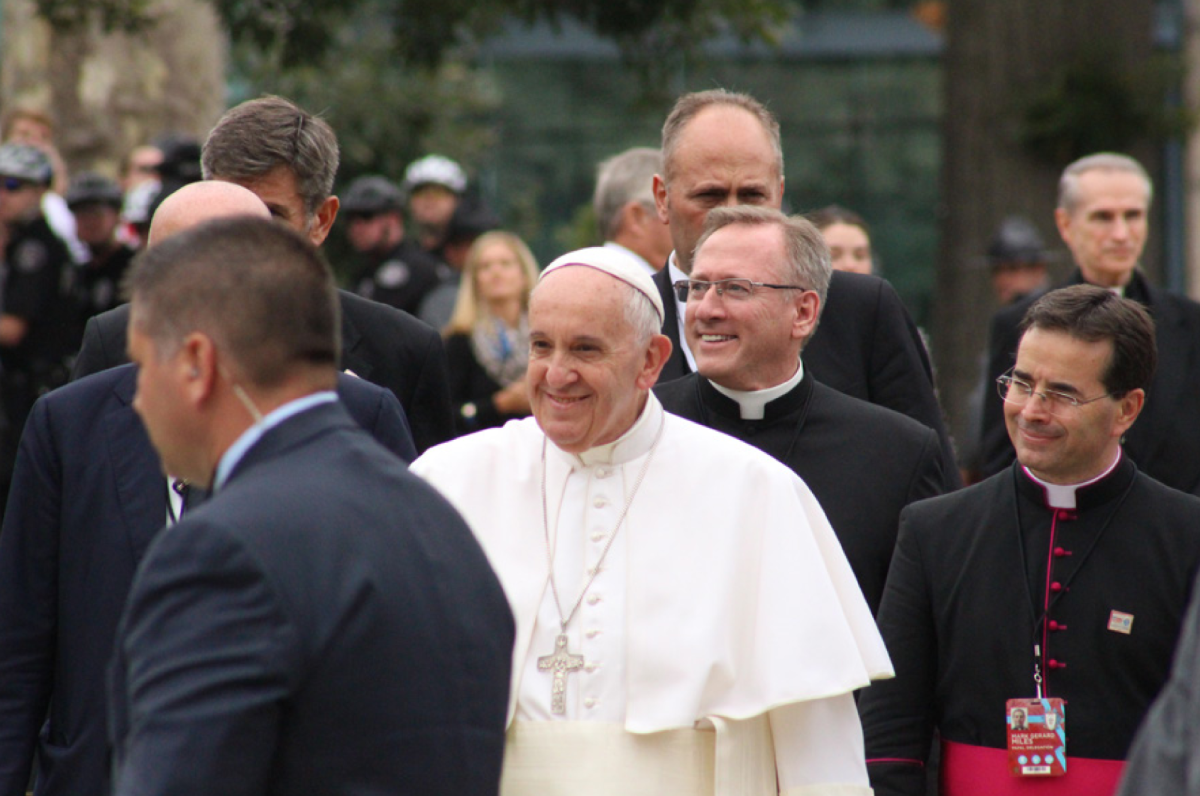Rosendal, South Africa–As a young child, Jacob Mallane fell ill without explanation. Along with intense stomach pains, he also lost his ability to read and write.
“I can write and read, but now I can’t, so I don’t know myself,” remembered Mallane, whose native language is Sesotho. “A dream comes and I said, now I must go to an old lady. I was given her name, and I’ll be healed.”
Mallane, a member of the Basotho people, whose ancestors have resided in South Africa for centuries, said he was healed after a ritual ceremony where he was given white beads to wear around his neck. The beads mark him as a spiritual healer, or sangoma in the Zulu language. He said he believes his dream was a calling for him to become a sangoma.

“The job of the sangoma is about the calling, the healing [of] people,” Mallane said. “If you don’t have the calling, you can undergo training by someone, but you may not be as powerful as the one who had the calling.”
After Mallane and his parents realized that he had been called to be a sangoma, he was taken out of school to train. The process of becoming a sangoma can take up to 20 years. Mallane returned to school when that initial training was complete.
In addition to being a traditional healer, Mallane also works as a police officer in Rosendal, a small farming and arts community in the Free State. Mallane is from the black township of Mautse, across the road from the majority white town of Rosendal, where he lives with his wife and where he has raised his five children. For many decades the apartheid government of South Africa had used legislation, often enforced through state violence, to divide the population into separate geographic areas – white rural towns or urban suburbs for white South Africans, and underserviced densely populated black townships, the most famous of which is Soweto, near Johannesburg.
In a large, secluded cave on the edge of the Rosendal municipal boundary, surrounded by the Witteberg mountains, Mallane goes to speak with his ancestors. Mallane believes he must ask his ancestors for permission to enter the cave, so he stops to place a small coin in a small river that flows into the cave, one for himself and one for any visitors accompanying him.

“We take these shiny coins, or sniff tobacco or cigar tobacco, to ask permission or to report that we are here so that my ancestors should not get angry at me that I didn’t report,” Mallane explained. “You cannot just cross. Now you ask permission to cross. Now everywhere we must cross, we must throw something to the ancestors.”
Mallane also brings people to this cave where water constantly flows through. He does this when he feels he cannot heal them himself and needs help from his ancestors.
“If there is a patient, and I can’t get him or her to be healed, this is the place I can come with the patient,” he said. “Maybe we sleep over or come and present them to the ancestors and ask solutions, ask for the way to deal with the patient.”
Mallane usually diagnoses his patients using bones from animals who have presented themselves in his dreams. He throws the bones and depending on what pattern they form when they land, he formulates his diagnosis. He uses the bones of a goat and cow that were slaughtered for him because they bore resemblance to ones in his dreams when he was younger and training to become a sangoma.
“The bones resemble everything,” he said. “When I throw them they talk to me.”
Yet, spiritual healing is not without controversy, both outside the Basotho community and within.
In 2014, the South African government passed the Traditional Health Practitioners. The act was put into place to regulate traditional healers. The legislation calls for traditional healers to fall under the same rules as the rest of South Africa’s health care system.
In Mautse, Christian missionaries who work in the community encourage the Mautse residents in their ministry to avoid sangomas.
In the Basotho community itself, other traditional healers sometimes don’t use their gift properly, Mallane said.
“For example, when there is [court] case of someone who had done something that is against the moral of the people, that person must go to jail,” Mallane said. “But now [that person’s] family can consult a sangoma to try to protect him from going to jail.”
This divine protection may not always work. For Mallane, a true sangoma uses his gifts to help his community–and that extends to roles outside traditional healing as well. Mallane helps the children in his community by coaching sports and teaching music.
“If you go to the youth, I’m involved with soccer, music, they know me,” he said. “Go to the elderly, I’m involved with them. Go to farmers, I’m involved with everyone.”
But of all the things he does, Mallane said being a sangoma is the job that is most special to him.
“I was once a politician,” he said. “I was a soldier. I have done a lot of things. I like them all. This one is special because I didn’t choose it.”







































